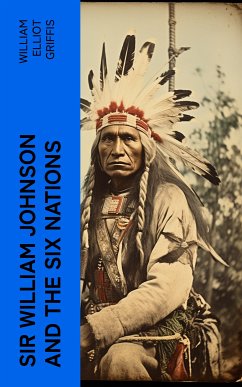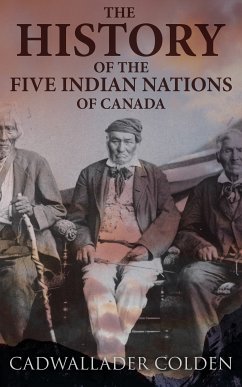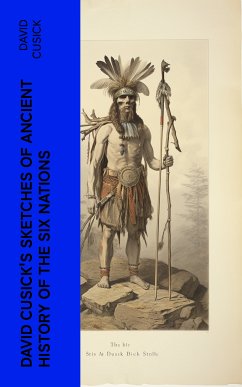
Sir William Johnson and the Six Nations (eBook, ePUB)
Versandkostenfrei!
Sofort per Download lieferbar
1,99 €
inkl. MwSt.
Weitere Ausgaben:

PAYBACK Punkte
0 °P sammeln!
In "Sir William Johnson and the Six Nations," William Elliot Griffis presents a compelling exploration of the complex interactions between Sir William Johnson, an influential colonial administrator, and the Iroquois Confederacy, also known as the Six Nations. The book intricately weaves historical narrative with biographical detail, employing an engaging literary style that blends meticulous research with vivid storytelling. Griffis contextualizes Johnson's role during a pivotal era in American history, highlighting his diplomatic efforts and cultural exchanges in a landscape fraught with conf...
In "Sir William Johnson and the Six Nations," William Elliot Griffis presents a compelling exploration of the complex interactions between Sir William Johnson, an influential colonial administrator, and the Iroquois Confederacy, also known as the Six Nations. The book intricately weaves historical narrative with biographical detail, employing an engaging literary style that blends meticulous research with vivid storytelling. Griffis contextualizes Johnson's role during a pivotal era in American history, highlighting his diplomatic efforts and cultural exchanges in a landscape fraught with conflict and transition, particularly in relation to British colonial policies and Native American sovereignty. William Elliot Griffis, a noted historian and educator of the late 19th century, held a profound interest in American history and Native American cultures, which fueled his passion for documenting underrepresented historical narratives. His scholarly pursuits, combined with his experiences living among the Japanese and Native American communities, informed his nuanced perspectives on cross-cultural relationships, making him uniquely positioned to write this illuminating work on Johnson and the Six Nations. Griffis's dedication to authentic representation and his obsession with historical accuracy resonate throughout his narrative. This book is essential not only for students of American history but also for anyone interested in understanding the intricate fabric of early American colonial dynamics and Indigenous agency. Griffis's scholarly yet accessible writing style invites readers to engage deeply with the material, placing them at the intersection of cultural exchange and historical consequence.
Dieser Download kann aus rechtlichen Gründen nur mit Rechnungsadresse in A, B, BG, CY, CZ, D, DK, EW, E, FIN, F, GR, H, IRL, I, LT, L, LR, M, NL, PL, P, R, S, SLO, SK ausgeliefert werden.













